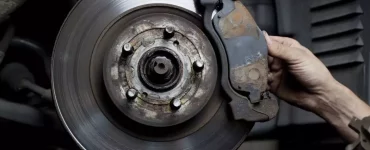Car Repair vs. Insurance Claims
Key Takeaways
| Point | Insight |
|---|---|
| Major Damages | When repair costs surpass your deductible, making an insurance claim is financially sensible. |
| Accidents Involving Multiple Parties | Insurance covers not just your damages but also liability in accidents involving others. |
| Minor Damages | Evaluate repair costs against deductibles; sometimes, paying out-of-pocket is the wiser choice. |
| Non-Collision Damages | Comprehensive insurance covers natural calamities, vandalism, and even personal belongings. |
| Wear and Tear | Regular maintenance and pre-existing conditions are not covered by insurance. |
| Geico vs Progressive | Geico offers quick filing through a user-friendly app, while Progressive excels in plan customization. |
Owning a car is akin to being in a long-term relationship: you care for it, spend time with it, and invest in its well-being. But let’s be real, not all days are sunny drives down the coast. Sometimes, your car decides to throw a tantrum, and you’re left with a glaring “Check Engine” light, a busted tire, or even worse, a crumpled bumper. When these undesirable moments come around, car owners find themselves standing at a crossroads, staring down two diverging paths: car repair insurance and out-of-pocket payments.
But which road should you take? Is filing an auto repair insurance claim always the right option, or are there instances where a personal touch (and personal cash) is preferable? What if you’re covered by big insurance names—how do Geico claims stack up against Progressive auto claims?
In this detailed guide, we will delve into the nitty-gritty of making this critical decision. We’ll explore scenarios where insurance claims are advantageous, instances where they may be a financial pitfall, and how to navigate the complexities of different insurance policies. We’ll also compare leading insurance providers to give you a clearer picture of what you can expect when that unfortunate repair bill comes your way.
So buckle up; we’re about to take a deep dive into the world of car repair vs. insurance claims. Whether you’re a seasoned driver or a newbie on the roads, this guide aims to steer you in the right direction when you’re faced with the dilemma of repair costs. 🚗

When to Use Car Repair Insurance: A Detailed Guide
When your car suffers from a mishap, whether it’s a major accident or a minor fender-bender, deciding between using car repair insurance and paying out-of-pocket is a pivotal decision. The choice can affect your future insurance premiums, immediate finances, and even legal liabilities. Below are some scenarios and considerations to help guide your choice.
Major Damages
- High Costs: When the repair costs are significantly higher than your insurance deductible, making a claim becomes a financially sensible decision. For example, if your deductible is $500 but the damages cost $3000, using your auto repair insurance is more economically viable.
- Long-Term Impact: Major damages might also involve complex repairs that could affect the long-term health of your vehicle. Insurance companies often have networks of trusted repair shops, ensuring quality work.
Accidents Involving Multiple Parties
- Liability: If you’re at fault in an accident that involves other cars or property, your liability could be substantial. In such cases, your auto repair insurance will not only cover your damages but also the damages inflicted upon others, up to your policy’s liability limit.
- Legal Obligations: Failing to meet your financial obligations after an accident can lead to legal repercussions. Your insurance can shield you from such risks.
Minor Damages
- Deductibles: For minor damages, consider the cost of your insurance deductible. If the repair costs are only slightly higher or even less than the deductible, it might be wiser to pay out-of-pocket.
- Premium Hike: Claiming insurance for minor repairs may cause your insurance premiums to rise. Evaluate if the immediate benefit outweighs the long-term cost.
Non-Collision Damages
- Natural Calamities and Vandalism: Sometimes, damages can occur from natural disasters like floods or hailstorms, or even from vandalism. Comprehensive insurance typically covers these, making it worthwhile to file a claim.
- Personal Belongings: If personal belongings inside the car are damaged or stolen during a break-in, some comprehensive policies might cover these losses as well.
Wear and Tear
- Regular Maintenance: If your car needs repairs due to normal wear and tear, insurance won’t cover it. This includes tire changes or issues stemming from poor suspension performance.
- Pre-Existing Conditions: Insurance also typically does not cover repairs for issues that existed before the policy was initiated.
Geico vs Progressive: A Comprehensive Comparison
When it comes to choosing between two giants like Geico and Progressive, the details can make all the difference. Both companies offer a range of insurance options, but there are some nuanced differences to consider. Let’s delve into some of the core aspects of Geico claims and Progressive auto claims to help you make an informed decision.
Geico Claims:
Ease of Filing:
- Mobile App: Geico’s mobile app is user-friendly, offering a straightforward process for filing claims. You can upload photos, input details, and get an agent’s response pretty quickly.
Response Time:
- Quick and Efficient: Geico has built a reputation for its quick response time. However, this can vary depending on the complexity of the claim and the number of claims in the queue.
Coverage:
- Comprehensive Options: Geico offers an extensive range of coverage options. From comprehensive and collision to liability and personal injury, you have plenty of choices.
- Discounts: Geico offers a multitude of discounts, including good driver discounts, multi-policy discounts, and even military discounts.
Progressive Auto Claims:
Ease of Filing:
- Online and Mobile: Just like Geico, Progressive also has an efficient online and mobile interface for claim filing. Their Name Your Price tool also allows you to customize your plan to fit your budget.
Response Time:
- Rapid but Detailed: Progressive is known for a quick yet thorough response. Their claims adjusters usually conduct an in-depth analysis to ensure fair settlement.
Coverage:
- Custom Plans: Progressive offers similar standard plans as Geico but takes it a step further by allowing more customization. You can add or remove certain types of coverage to better match your needs.
- Bundling: Progressive is well-known for their bundling options. If you have multiple policies like home and auto, bundling them can offer significant savings.
Tips to Save on Auto Repairs

If you opt for out-of-pocket expenses, consider these tips:
- Regular Maintenance: Keep your car in top shape to avoid breakdowns.
- Parts and Labor: Compare costs of parts and labor before making a decision. Check for performance upgrades that might be more cost-effective.
- Online Quotes: Get online quotes from various service providers and see if any can match your insurance estimate.
Potential Pitfalls
- Deductibles: High deductibles can often make out-of-pocket payments more sensible.
- Premium Increase: Claiming insurance for minor repairs could hike your future premiums.
Final Thoughts
Choosing between car repair insurance and paying out-of-pocket often depends on the cost of repair, your insurance deductible, and potential impact on future premiums.
For those looking to upgrade their cars, be sure to check out our articles on the best winch for your Jeep or performance air filter brands.
So the next time your car needs a fix, weigh the pros and cons and make an educated decision. Happy driving! 🚗
Q&A Section for car repair insurance
Q: When should I opt for car repair insurance? A: For major damages exceeding your deductible, accidents involving multiple parties, and non-collision damages like natural calamities.
Q: Are minor damages worth an insurance claim? A: Evaluate repair costs against deductibles; sometimes, paying out-of-pocket avoids future premium hikes.
Q: What about wear and tear or pre-existing conditions? A: Insurance doesn’t cover regular maintenance or issues existing before policy initiation.
Q: How do Geico and Progressive claims differ? A: Geico boasts a user-friendly app with quick responses, while Progressive excels in plan customization and bundling options.
Q: Any tips for saving on auto repairs? A: Regular maintenance, comparing parts and labor costs, and seeking online quotes can help cut auto repair expenses.
Q: What are potential pitfalls of insurance claims? A: High deductibles and the risk of future premium increases make out-of-pocket payments more sensible for minor repairs.





[…] and maintaining a vehicle comes with considerable costs – fuel, insurance, registration fees, general upkeep. But the expenses related to major unexpected car repairs like […]
[…] to the Insurance Institute for Highway Safety, the 2012 Dodge Avenger is a “Top Safety Pick,” which […]
[…] Breakdown Insurance […]
[…] role. Automatic transmission repairs can be costly, sometimes prompting car owners to weigh the pros and cons of car repair vs insurance claims. It’s essential to consider the long-term value of the repair against the value of your […]